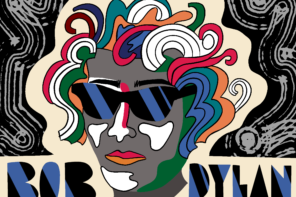The following article initially appeared in a reduced version in the Bull & Bear Winter 2021 Print Issue: Healing.
In a recent interview for the CBC radio show “Q,” Alanis Morrisette said, “Anger is such a powerful, beautiful emotion that can move worlds, it can set boundaries, it can help us show up, it can help us vote, it can help us not tolerate certain circumstances anymore.”
In 2021, we have seen what anger can do when channeled for purposes other than violence or hate. Anger has helped set forth powerful activist movements that have reckoned with the ugly reality of racism in Canada, and it has helped us process terrible emotions that have arisen during a uniquely stressful couple of semesters. So, rather than sharing sad or slow music that relates to the theme of healing, we decided to channel our inner Alanises and showcase some angry Canadian artists who prove that, hey, sometimes it’s okay to recover through rage.
Sam’s Side A
“Narcissus” by Alanis Morrissette
When it comes to Alanis Morrissette, there were a lot of songs I could have picked. Of course, there’s “You Oughta Know,” the fiery breakup track and number one song choice for drunk millennials at karaoke parties. Then there’s “Hands Clean,” a true story about Alanis’s sexual exploitation by a manager in the music industry when she was only fourteen.
But for this playlist, I decided to go with “Narcissus” from the album Under Rug Swept. In the song, Alanis sings about unrequited love for an emotionally immature boy. “I know you’ve never really taken responsibility / I know you’ve never really listened to a woman” she speak-sings, listing the many, many irritating traits of her partner. Every time I listen to the song, I am caught off guard by the chorus: “Why, why do I try to love you? / Try to love you when you really don’t want me to.” Despite his countless flaws and her unreciprocated affection, Alanis can’t let go of her infatuation for a mediocre man. Now, doesn’t that sound like a McGill student singing about a Mile End boy?
“The Virus” by A Tribe Called Red
Credit for this entry goes to the department at CBC Music, whose music series, “Reclaimed,” introduced me to a range of inspiring North American Indigenous protest music, including A Tribe Called Red. The band, consisting of members from the Cayuga, Nipissing, and Mohawk Nations, fuses traditional powwow drum beats with electro-dance-music. The result? Radical protest music you can get down to at the club. (Or, more realistically, your bedroom.)
For this list, I went with the song “The Virus” from the band’s most recent album, We Are The Halluci Nation. Using techno music, A Tribe Called Red sings about land dispossession, proselytizing Christian missionaries, and the spread of deadly, contagious diseases. The beat drops at the line, “We are not a conquered people,” reminding us that despite the damage of settler colonialism, Indigenous Canadians continue to resist and assert their sovereignty to this day. In 2021, as we all contend with mutating strains of anti-Indigenous racism and a new pandemic, A Tribe Called Red’s powerful beat of resistance takes on a radical new meaning.
“New Orleans is Sinking” by The Tragically Hip
In October 2017, Canada lost one of the greatest rock musicians in the nation’s history: The Tragically Hip’s lead singer, Gord Downie. Alongside his five bandmates, Downie devoted his life to making music that forever changed how we appreciate Canada’s magnificent outdoors. “Ahead By a Century” is a hazy, innocent memory from early childhood put to folk music. In “Bobcaygeon,” Downie sings an (accidental) ode to a small community near Kawartha Lakes that also contains a coded, antiracist message.
Their songs may be emotional, but that’s not to say this legendary Canadian folk band can’t get angry as well. “New Orleans is Sinking” is a short but powerful rager, complete with an impressive extended electric guitar riff. Using a metaphor that has become all too literal since the song’s release in 1989, Downie sings about how he would rather abandon the city he knows than watch it deteriorate into a place he can no longer recognize. Sounds like the perfect refrain for when a recent wave of Montreal construction makes your favourite campus bar inaccessible, or for when your favourite Mile End cafe gets replaced with yet another Starbucks.
“That Don’t Impress Me Much” by Shania Twain
There’s something distinctly McGillian about Shania Twain’s anthem of utter unenthusiasm. “That Don’t Impress Me Much” sounds like it was written after a round of rapid-fire job interviews inside the back corner of Santropol restaurant. Reading over McGill students’ resumes, it’s easy to construe every minor club position that you never actually attended as an outstanding achievement. “Oh, you’re the VP Internal of the Wine-Tasting Society?” “Oh, you have a perfect GPA because you minored in a language you already speak?” “That don’t impress me much” because your job is probably going to be performed by a robot in two years’ time.
Yet, Shania Twain’s song is more than just an indictment against LinkedIn bros and egotistical overachievers. Twain points to how we should search for warmth and commitment in our romantic partners, not just glamour and glitz. Deep stuff for a pop star from the 90s, if you ask me!
Sarah’s Side B
“Rebellion (Lies)” by Arcade Fire
Montreal-born band Arcade Fire is known for its transcendent indie anthems and cross-genre hits. “Rebellion (Lies),” from the band’s 2004 debut album Funeral, takes the listener through their own kind of cathartic temper tantrum. From the first lines, this song tells me what I need to hear when I can’t find the motivation to get out of bed and log into my 8:30 Zoom meeting: “Sleeping is giving in / No matter what the time is / Sleeping is giving in / So lift those heavy eyelids.” In maintaining your rebelliousness, you have to keep working.
As Wyn Butler croons, “Come on baby, in our dreams / We can live our misbehavior,” the lyrics take on a new meaning, as the “misbehavior” we’re craving in our dreams has become something as simple as going to the club with our friends. As much as I’m sure we all feel the urge to rebel against nearly a year of forced isolation and the constant lie that it’s all getting better soon, channelling your rage and rebellion into a short burst of emotional release while dancing to “Rebellion (Lies)” is a healthy way to work through your pandemic anger.
“Complicated” by Avril Lavigne
No Canadian mixtape would be complete without the queen of pop punk herself, Avril Lavigne. The woman who single-handedly made it cool for girls to wear ties, Avril Lavigne is herself a microcosm of the early 2000s. Folks on the internet maintain that Lavigne died in 2003 and was replaced by a clone, a conspiracy that gives songs like “Complicated” a bittersweet tone. This timeless banger is all about loving and accepting yourself how you are; there’s no need to make it so complicated. As much as Avril Lavigne herself may have become “somebody else ‘round everyone else,” the message of the song is clear: when you have confidence in your genuine self, people will respond to your individuality.
I dare you to listen to “Complicated” without singing along. You’ll find yourself believing the lyrics: “Chill out, whatcha yellin’ for? / Lay back, it’s all been done before.” At a time when we are all struggling to find motivation, sometimes it’s nice to give yourself a break and remind yourself to take everything a little less seriously.
“Protest Song” by Broken Social Scene
Listening to Broken Social Scene will make you reminisce on your good ol’ emo days, whether or not you’re currently experiencing a pandemic-induced emo resurgence. Songs like “Anthems for a Seventeen Year-Old Girl” allow you to revel in teenage angst. Although we have to remain separated, “Protest Song” encourages us to remember that we exist in the larger historical context of the continual fight for equality.
“Protest Song” connects you to history and roots you in the assertion that humanity will continue to persevere. The listener is implored to “Just take it, just take it like you’re strong,” a reminder that, no matter what, you can get through this. At a time when it feels like we’ve pressed pause on issues of collective social justice until it’s safe to gather, the refrain that “We’re just the latest in the longest rank and file list / Ever to exist in the history of the protest song” provides comfort in the fact that the fight for social justice will remain strong after the pandemic.
“Rockstar” by Nickelback
I love Nickelback. At a time when everything is topsy-turvy, it’s comforting to know that Chad Kroeger will always be there to look at this photograph. Although Kroeger’s marriage to Avril Lavigne was short-lived, lasting only from 2013 to 2015, their music comes together on this mix to embody the perfect Canadian rage-rock. In “Rockstar,” Nickelback takes a satirical look at the rock industry. Being washed-up comes with the territory of being famous; in wanting to be a rockstar, Kroeger needs to give up the individuality that Lavigne urges us to build up in “Complicated.”
“Rockstar” is a great song to listen to on a walk up slushy Mount Royal. Try not to slip and fall while imagining living the high life in LA. Maybe one day you’ll “trade this life for fortune and fame,” swapping chilly Canada for sunny Hollywood just like Kroeger did. As much as I miss “standing in line to clubs I’ll never get in,” it’s nice to imagine throwing a rockstar bash at your hilltop house with your famous friends.
*
In a recent appearance on Stephen Colbert’s late night show, drag legend RuPaul discussed how he listens to sad music in order to create an emotional release and reboot. “I take songs that make me cry, and I’ll cry my eyes out,” he explained, “and it always makes me feel better.” In these difficult times of seemingly never-ending restrictions, we hope that listening to this playlist can help you all release some of that hard-earned rage.
Check out our mix on Spotify and Apple Music!








